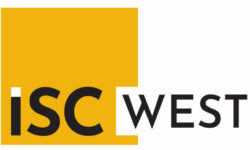Confronting the Cybersecurity Challenge & Other Strategic Integrator Topics
OpenEye’s Ian Siemer touches on hot topics affecting the systems integration channel, including cybersecurity, migrating to Cloud-based solutions, customer service and more.

Ian Siemer
Based in Liberty Lake, Wash., OpenEye is a privately owned designer and manufacturer of Cloud-managed video surveillance software and hardware solutions. The company’s Ian Siemer, vice president of marketing and product management, joins the conversation to discuss the marketplace in this era of rising cybersecurity urgency, among other topics.
OpenEye was an exhibiting sponsor of the inaugural Cyber:Secured Forum in June. What steps has the company taken internally to implement a cyber strategy to secure its products portfolio?
Being a solutions provider of Cloud-managed systems we recognize the importance of strong cybersecurity practices to protect both our Cloud services and our onsite hardware. We dedicate significant time and resources to staying abreast of cybersecurity threats that impact our products and our organization.
Our platform employs multifactor authentication for user credentials, end-to-end communication encryption and requires no open inbound ports. Internally we maintain stringent employee data use policies, comply with GDPR [General Data Protection Regulation], perform recurring vulnerability scans and employ third-party auditing.
Not only were we sponsoring the event but our employees were also in attendance to advance our knowledge of the cybersecurity landscape and develop the next solutions required to keep our platform secure.
What is your frank assessment of where the systems integrator community in the U.S. currently resides in terms of awareness and adoption of a cyber strategy?
It’s a broad spectrum with regards to the knowledge and skill level of systems integrators. The good news, however, is across the board it is rising. This is being driven by an increased awareness of the importance of cybersecurity by end users, by the industry as a whole and by manufacturers recognizing the role their products play.
I don’t think we as an industry are late to the game when compared to similar industries, offering technology products, servicing the same customer base.
Cybersecurity is a hot button for everyone currently, this alone will drive manufacturers to develop new, more secure, technologies and to better educate integrators on how to securely deploy their products. There is also a financial incentive for integrators to become more knowledgeable and provide additional value to their customers in the form of cybersecurity expertise.
The issue is that cybersecurity is an ever-changing landscape, there is no end point. Now that the importance of effective cybersecurity is recognized, it will be incumbent on everyone to remain vigilant and adapt to the ever-changing threats that prevent themselves.
Standards bodies can help further drive the importance of security awareness and provide frameworks to make it easier for end users and service providers to self-audit. It is always important to have a starting point.
Can a locally-based or small regional systems integrator have success selling to and servicing enterprise-level organizations?
End users are taking a more active role in their own cybersecurity, especially enterprise-level organizations. If an integrator chooses a strong manufacturer partner that is committed to cybersecurity, and making the appropriate security resources and tools available, they can definitely service this customer segment.
I have seen small, two-man shops with immense amounts of cybersecurity knowledge, and large service organizations with very little. Regardless of the company’s size, it comes down to the willingness to educate yourself on the subject matter and keep make it a priority for your business.
Cybersecurity aside, if an integrator doesn’t want to compete on price alone, how can they move to offer more value to the customer?
One of the most exciting changes taking place in the industry has been the shift toward looking at video surveillance solutions as more than just a tool for recording video. Many integrators were rightfully concerned about the commoditization of recording hardware and how that would impact the market.
The response to this has been added value in the form of centralized Cloud management, health monitoring, alarm reporting, real-time alerts and analytics. I think it is easier than ever for integrators to offer their customers value in the form of managed services or actionable business intelligence that can have a real impact on their bottom line.
Integrators need to educate themselves on the value-added features offered by manufacturers and build them into a service offering that is relevant to their customer base. The best part is most manufacturers already have the resources available to make this easy. OpenEye’s Web Services platform was specifically built for just this purpose, to add value beyond the recorder and generate RMR, but there are many options available.
What should be foremost in mind for integrators that are exploring a Cloud-based offering?
They need to right size their solution for their customer base. Before they start looking for a Cloud-based solution provider, they need to generate a profile of who their existing or target customers are.
What is the average channel count of a system? Do their customers have access to high speed Internet; or are they willing to pay more for it? Does the customer have POS on the same network? Does the customer need a local client? The answers to these questions can help define the requirements they should expect from a Cloud-based offering.
What new demands are you seeing in the marketplace that end users are placing on your integrator partners?
With end users’ increased awareness of the importance of cybersecurity, we are seeing integrators bombarded with more questions and formal requirements documentation. This most directly manifests itself in the form of IT’s requirement for features like no open inbound ports, encrypted data communication, multifactor authentication, data redundancy and centralized user permissions management.
OpenEye not only offers these advanced security measures in our platform, but we also have created an internal security support team to assist our channel partners in answering these requirements requests and responding to end users’ security concerns.
You’ll agree there is a lot of hyperbole sometimes used by marketers where it concerns customer service. OpenEye touts “heroic customer service.” Explain what you actually intend this terminology to convey in a practical sense and in practice with your integrator partners.
It means we go above and beyond to support our customers and stand behind our product, regardless of what it takes. Every employee from support to the CEO is empowered to do whatever is needed to solve a customer’s issue to their satisfaction.
There is no one specific policy or mandate which governs this; it is executed in countless different ways on a daily basis. It’s a philosophy we live by. We have even built an internal program around rewarding employees for living up to this standard.
This program allows coworkers to recognize one another when they observe heroic service in action. This translates into rewards, recognition at company events and additional job perks. You can ask any one of our customers or employees how seriously we take this commitment.
If you enjoyed this article and want to receive more valuable industry content like this, click here to sign up for our FREE digital newsletters!

Security Is Our Business, Too
For professionals who recommend, buy and install all types of electronic security equipment, a free subscription to Commercial Integrator + Security Sales & Integration is like having a consultant on call. You’ll find an ideal balance of technology and business coverage, with installation tips and techniques for products and updates on how to add to your bottom line.
A FREE subscription to the top resource for security and integration industry will prove to be invaluable.














